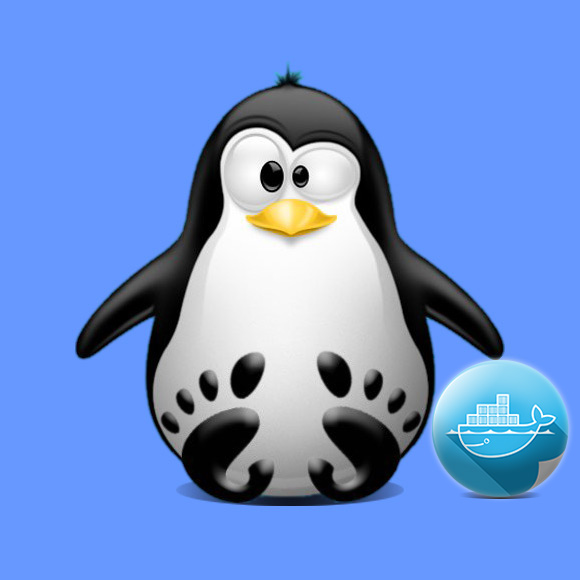GNU/Linux Debian Docker CE Apt Repository Setup – Step-by-step Guide
This Tip shows you Step-by-Step How to Setup the Apt Repository for Docker Community Edition Installation on GNU/Linux Debian based OSes.
Docker is a Command-line Program, a background Daemon, and a set of Remote Services that take a Logistical Approach to Solving common Software Problems and Simplifying your experience Installing, Running, Publishing, and Removing Software.
Getting Started with Docker on Debian is Easy, it’s enough to Install it and then Use the Docker Engine to Create and Manage Containers.
Finally, this Setup is valid for all the Debian-based Distros like:
- Kali
- MX Linux
- Deepin
- Parrot
- antiX
- SparkyLinux
- Q4OS
- Netrunner
- Voyager
- MakuluLinux
- Elive
- LMDE
- Devuan

1. Terminal Getting Started Guide
How to Quick Start with Command Line on Debian GNU/Linux
First Update the Apt Repo Sources with:
sudo apt update
Authenticate with the User Admin Pass.
If Got “User is Not in Sudoers file” then see: How to Enable sudo.2. Installing Dependencies
Install Required Packages
Play:sudo apt install apt-transport-https curl ca-certificates gnupg
3. Adding Docker CE GPG Key
Import the Docker CE GPG Key
First, make the Target Directory:sudo install -m 0755 -d /etc/apt/keyrings
And then to Setup it run:curl -fsSL https://download.docker.com/linux/ubuntu/gpg | sudo gpg --dearmor -o /etc/apt/keyrings/docker.gpg
Last, to fix Permission:sudo chmod a+r /etc/apt/keyrings/docker.gpg
4. Installing Docker CE Repo
Add the Docker CE Repository
You have 2 Alternatives: ‘stable’ or ‘nightly’ Channel.
So for the Stable Release on Debian 8/9/10/11/12 Based OSes play:echo "deb [arch="$(dpkg --print-architecture)" signed-by=/etc/apt/keyrings/docker.gpg] https://download.docker.com/linux/debian "$(. /etc/os-release && echo "$VERSION_CODENAME")" stable" | sudo tee /etc/apt/sources.list.d/docker.list > /dev/null
For Debian Stable based and Kali Rolling at this Time proceed like this:
echo "deb [arch="$(dpkg --print-architecture)" signed-by=/etc/apt/keyrings/docker.gpg] https://download.docker.com/linux/debian "$(. /etc/os-release && echo "bookworm")" stable" | sudo tee /etc/apt/sources.list.d/docker.list > /dev/null
And for All other Debian-based if uncertain simply try with the above Command.
In case of Not Found try to then Amend it manually with:sudo nano /etc/apt/sources.list.d/docker.list
And for instance, Change:https://download.docker.com/linux/debian sid
In some Previous release like for instance:https://download.docker.com/linux/debian bookworm
Ctrl+x to Save & Exit from nano ;)
And then Update the Apt Sources again.5. Refreshing Repos
Last Refresh the Repositories
Simply run:sudo apt update
6. Docker Getting Started
Docker Quick Start for Debian Based